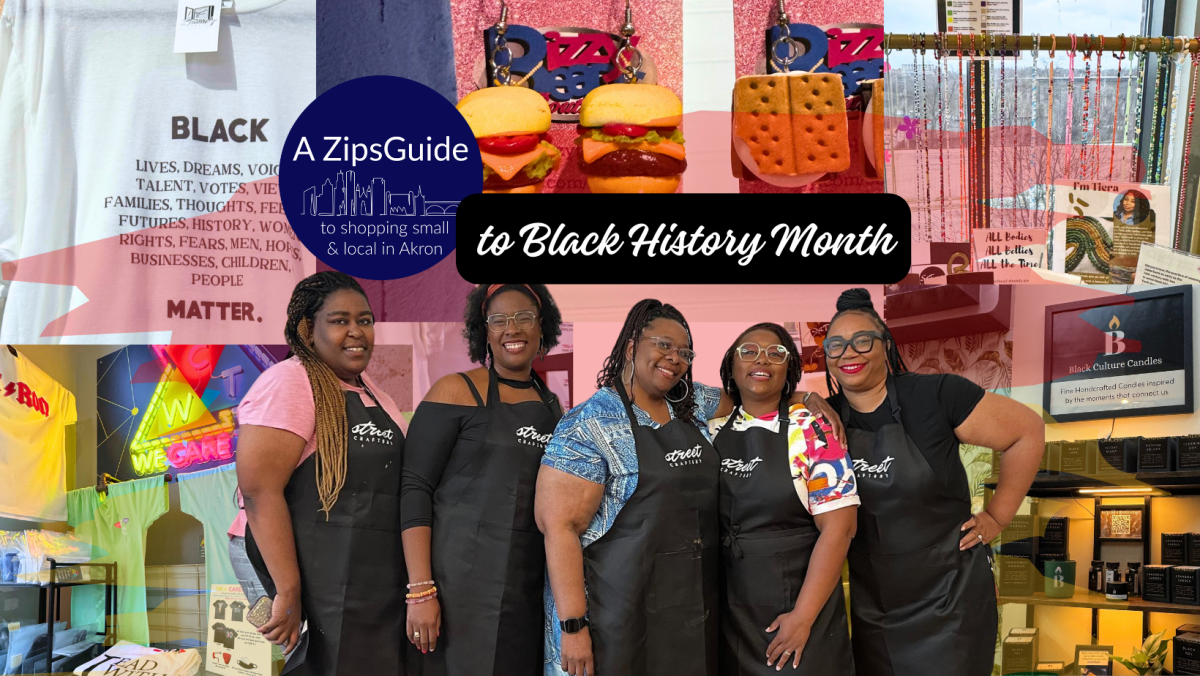Written by: Alexandra Didato
The other day I was listening to the radio in my car and was appalled by a song that came on one of Akron’s “hit” radio stations: “Whistle” by Flo Rida.
Have you heard it? The chorus goes like this: “Can you blow my whistle baby, whistle baby / Let me know / Girl, I’m gonna show you how to do it / And we start real slow / You just put your lips together / And you come real close / Can you blow my whistle baby, whistle baby / Here we go.”
I can’t fathom how a song with such a strong sexual innuendo can be played freely on public radio, for people of all ages to hear.
I can still recall, in great detail, many songs I heard on the radio when I was in elementary school — songs my friends and I used to sing together —that I only fully understood as I got older. To think that there are children and preteens hearing songs such as these, and even singing along to them, disgusts me.
Even more disturbing is the way our society continues to feed into this kind of music and language without truly understanding its effect on our culture and the next generation.
It’s clear enough that “Whistle” is about oral sex. So what does Flo Rida hope to stir up within his listeners?
Sexually explicit songs, whether or not they hide behind innuendo, can very easily instill sexual thoughts and desires in the minds of those hearing it. It’s these sexual thoughts and desires that lead people to crave a release from this tension. This can, and often does occur, in the form of watching online pornography, engaging in sexual acts alone or with a significant other, or even purchasing sex from a stranger.
I believe that songs such as this often lead to the use of online pornography, thus increasing the demand for sex, and ultimately giving pimps a market for selling sex slaves.
While it may seem that I’m jumping the gun in saying that sexually-charged songs can lead to an increase in sex trafficking, allow me to share a few statistics.
The National Campaign said that on ABC, NBC, CBS and Fox alone, between 2001 and 2002, “71 percent of programs contained sexual content, with an average
of 6.1 sex-related scenes per hour.”
Another alarming statistic: “[I]n 2005, youth were 1.7 times more likely to report aggressive solicitations than five years earlier. Among the U.S. youth Internet respondents to the 2005 (national) survey, 20 percent reported being victimized online, with nearly half of those (45 percent) receiveng requests for sexual pictures of themselves.”
Stay with me here. Coincidently, The Initiative Against Sexual Trafficking stated, “From fiscal year 2001 through fiscal year 2005, the Civil Rights Division and United States Attorney’s Offices filed 91 trafficking cases, a 405 percent increase over the number of trafficking cases filed from fiscal years 1996 through 2000.”
While this could very well be a coincidence, it seems clear to me that — in a society where sex is glorified, and television shows, movies and the content of musical lyrics continue to grow in sexual content—these statistics are in no way a coincidence.
I believe there is a clear correlation between the increase of sexual content in the media and the demand for sex in America.
Where something begins, however, it can also end.
Though the media glorifies sex, it can just as easily educate society on the harms and dangers of human trafficking, and on the impact the sex trade has had not only in surrounding countries, but in our country as well.
That’s why, as a journalist, I choose not to “go with the flow” of the media and glorify scandals, sex and manipulation. Instead, I choose to shed light on the insidiousness that lies beneath these issues: betrayal, lust, the loss of a sense of freedom, coercion and imposing danger. I encourage everyone to get involved in raising awareness of the issue of human trafficking and the heightened demand for it: talk about it, blog about it, share facts and articles about it on social media sites.
I, for one, cannot and will not sit idly by knowing that there are currently 1,000 children being trafficked in Ohio this very minute. I encourage those who share this passion to join me in standing up against this injustice and the enslavement of free will.
Let’s not be afraid to speak up about this issue and to stand up against what the media is telling us is just for fun, and has no serious consequences or imposing danger. The consequence is clear, and it’s happening right under our noses, this very minute.
There is an insatiable demand for sex in our country. Adolescents, teenagers and adults are paying the price in the cruelest ways imaginable.
So, yes, Flo Rida —“Here we go.” But certainly not in your direction…













